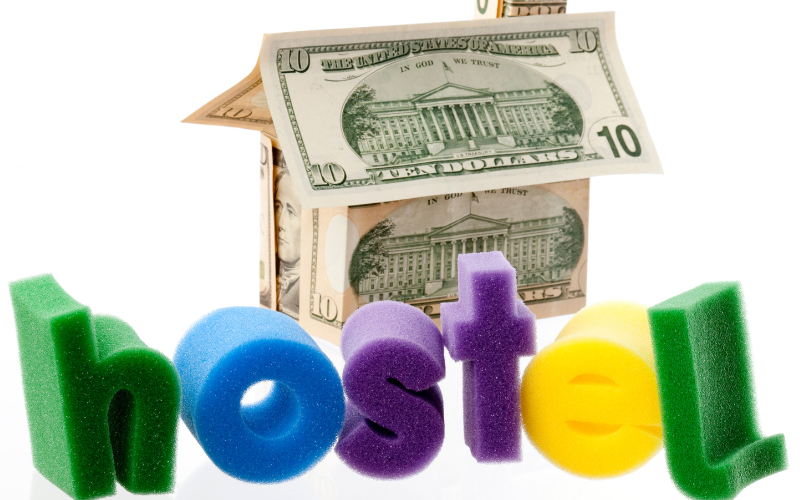Wondering if hostels are profitable? This article takes a dive into the business, exploring costs, revenue, and factors that contribute to success in the industry.
The hostel industry has become a popular and thriving business around the world. Known for offering budget-friendly accommodations, hostels have a charm that appeals to travelers looking for affordable places to stay and a social atmosphere. From solo adventurers to groups of friends, hostels attract a wide range of people, making them an exciting option for both guests and entrepreneurs.
So, why are so many entrepreneurs considering hostels as a business venture? The combination of low startup costs compared to hotels, high demand from budget travelers, and the chance to build a strong community vibe make it an attractive business option. Plus, with the rise of digital nomads and international travel, the hostel business shows no signs of slowing down.
In this article, we’ll take a closer look at whether hostels are profitable and what makes them a viable business opportunity. Whether you’re dreaming of opening your own hostel or curious about the industry, this will give you a clear picture of what goes into making a hostel successful.

Key question: Can hostels be profitable?
Yes, hostels can be profitable! Like any business, success depends on several factors, such as location, management, and market demand. Hostels often have lower overhead costs compared to hotels, which can help increase profitability. They typically offer shared rooms and communal spaces, making them more affordable for guests and allowing for higher occupancy rates.
However, while the potential for profit is there, running a successful hostel requires careful planning. You’ll need to consider things like location, target audience, operational costs, and creating a welcoming environment that keeps guests coming back.
Understanding Hostel Business Models
When it comes to hostel business models, there are a few different types that cater to varying customer preferences and budgets. The most common models are budget, boutique, and hybrid hostels.
Budget hostels are traditional, no-frills options that offer shared dorms and basic facilities at an affordable price. They focus on keeping costs low and attracting travelers who want to save money while meeting others.
Boutique hostels are more stylish and often offer private rooms alongside shared dorms. They cater to travelers looking for a bit more comfort and unique design while maintaining the social aspect.
Hybrid hostels blend features of both budget and boutique styles, offering a range of options from basic dorms to higher-end private rooms, along with premium services such as café spaces, tours, or events.
Hostels earn revenue in several ways. The main source typically is dorm beds and private rooms, with prices varying depending on the season and location. Many hostels also boost their profits by offering food and beverages (like cafés or bars), tours, and events that attract both guests and locals.
Startup Costs and Initial Investments
Starting a hostel comes with several key expenses that need to be considered from the very beginning. One of the largest costs is the property acquisition or lease. Depending on the location, purchasing a property or securing a lease can be a significant upfront investment. For many hostel owners, leasing is a more affordable option, but the cost will still depend on the property’s size and location.
Once the property is secured, the next steps are renovations, furnishing, and branding. Hostels typically need to be renovated to create a comfortable, functional space for guests. You’ll also need to invest in furniture, décor, and branding to make the hostel attractive and memorable for travelers. The amount you spend on renovations can vary greatly depending on the condition of the property and the kind of hostel you want to create.
Additionally, there are licensing, permits, and insurance requirements that must be met before you can open your doors. These legal requirements vary by location, but most hostels will need business licenses, health and safety permits, and insurance.
Revenue Potential: How Hostels Make MoneyHostels generate revenue in multiple ways, with bed occupancy rates being the most significant source. The more beds you fill, the more money you make. Pricing strategies play a big role in maximizing profits. Hostels often offer dormitory-style rooms at lower rates than private rooms, with the goal of filling as many beds as possible. Adjusting prices based on demand, like charging higher rates during peak seasons or for private rooms, can help increase revenue.
Revenue Potential: How Hostels Make Money and are hostels profitable
Hostels generate revenue in multiple ways, with bed occupancy rates being the most significant source. The more beds you fill, the more money you make. Pricing strategies play a big role in maximizing profits. Hostels often offer dormitory-style rooms at lower rates than private rooms, with the goal of filling as many beds as possible. Adjusting prices based on demand, like charging higher rates during peak seasons or for private rooms, can help increase revenue.
Hostels can boost their income through additional sources besides bed rentals. Many run bars or cafes that serve drinks, meals, or snacks to guests and locals, providing a steady income stream. Some hostels also offer rentals, such as bikes, surfboards, or gear for outdoor activities, which can generate extra revenue. Establishing partnerships with local businesses for tours, transportation, or activities is another way to earn money, often earning commissions or referral fees.
Hostels must also account for seasonal demand fluctuations. During peak travel seasons (summer, holidays, or special events), prices can be adjusted to accommodate higher demand. Conversely, during off-peak seasons, prices may need to be lowered to attract more guests, or special offers and promotions might be needed to keep occupancy rates up.
Key Expenses That Affect Profitability
While hostels have great revenue potential, there are also expenses that can impact profitability. One of the main ongoing costs is operational expenses, which include utilities (like water, electricity, and internet), staff salaries, and maintenance. Hostels require staff to manage check-ins, housekeeping, and general operations, which can add up over time.
Marketing and online booking fees are other significant expenses. Many hostels rely on online travel agencies (OTAs) like Booking.com, Hostelworld, or Expedia to reach potential guests. These platforms charge commissions, usually ranging from 10-20% of each booking, which can quickly add up, especially if most of your bookings come through these channels. However, investing in your own website and marketing efforts can help reduce these costs by driving direct bookings.
Finally, unexpected expenses can arise at any time. From emergency repairs to changes in local regulations, it’s important to budget for the unexpected. Setting aside a contingency fund for emergencies, such as damage to the property or unforeseen operational costs, can help prevent financial stress and keep the business running smoothly.

Strategies for Maximizing Profitability
To boost profitability, hostels can use several strategies.
Increase occupancy through:
- Digital Marketing
- Partnerships with local businesses
- Strong online presence and social media
Upsell experiences, tours, and premium services:
- Offer activities like guided tours or unique experiences
- Provide extra services such as private rooms or airport transfers
Implement cost-effective and sustainable practices:
- Use energy-saving solutions
- Conserve water
- Choose eco-friendly products
Challenges and Risks of Running a Hostel
Now that we’ve discussed how to make a hostel profitable, it’s important to understand the challenges and risks involved. One key issue is managing guest expectations and reviews. Negative reviews can impact your reputation quickly, so it’s crucial to provide excellent service, cleanliness, and comfort to keep guests happy.
Hostels also face competition from hotels, Airbnb, and co-living spaces, which often provide similar offerings with added amenities. To stay competitive, hostels need to stand out by offering unique experiences and maintaining affordable pricing.
Another challenge is handling staff turnover and operational issues. High turnover rates among staff can affect service consistency, and operational problems, like maintenance issues or booking errors, can disrupt the guest experience. Addressing these challenges efficiently is crucial for long-term success.
So, Are Hostels Profitable?: Is Investing in a Hostel Business Worth It?
Investing in a hostel has both pros and cons. The good side is that hostels can offer multiple ways to make money, attract budget-friendly travelers, and create a fun community atmosphere. With the right location and management, it can be profitable. However, there are risks like changing demand, high costs, and managing guest satisfaction and staff turnover.
For long-term financial success, a hostel can be profitable if you focus on filling rooms, keeping costs low, and offering unique experiences. But, like any business, it requires good planning and flexibility to keep up with changes in the market.
So, who should invest in a hostel? Owning a hostel could be a great investment if you’re passionate about hospitality, understand the travel business, and are ready for challenges. But a hostel might not be the right choice if you’re looking for something with less risk and less work. It’s a hands-on business, but it can be a rewarding opportunity for the right person!


